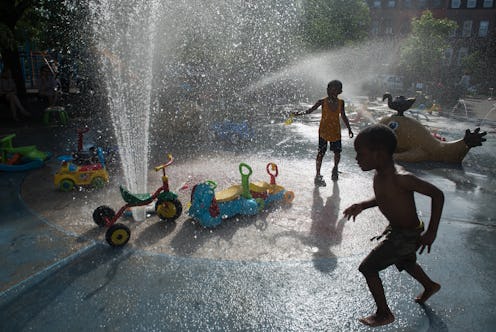
Emily Gordon over at Hello Giggles isn’t the only person who’s a little bemused at the current trend of celebrity journalists asking young female stars, “Do you consider yourself a feminist?” It’s the sort of shock value question that makes for terrific sound bytes, whether they’re powerful, awkward, or somewhere in between. Of course there are endless possibilities that explain the reasoning behind each answer; one of the most obvious, though, is that feminism can be a pretty nebulous concept.
Which got Gordon thinking: How are kids learning about feminism today? What are they learning about it? To try to figure it out, she asked a bunch of kids between the ages of eight and 12 — both boys and girls — the following: “Have you heard the word feminism? What does feminism mean to you?” Gordon notes that her survey is far from scientific; in spite of that, though, it looks like kids first become aware of feminism as a concept around the age of 11. Kids younger than 11 tended to give answers like the eight-year-old boy who said, “No, I haven’t heard that word. It just reminds me of ‘feather’” and the 10-year-old girl who replied, “I think so. To me it sounds like a superpower. It sounds like the word female. Female superpowers?” It was a 12-year-old girl, however, who hit the nail on the proverbial head: “It means that guys and girls are the same and shouldn’t be treated differently because they’re guys and girls.”
Some of the responses from the boys in particular, though, are… disheartening. One eight-year-old boy said, “Nothing should change. Because the circumstances of history belong to us. The strong men!” At least there was the one 10-year-old boy who said, “It’s when people try to stop sexism against women.” He added directly to his parent, “You talk about it all the time.” Check out the rest of the answers at Hello Giggles, and prepare to be amused.
The question that arises from all this has to do with when exactly we should start talking with kids about feminism. It’s tempting to pin it at age 11, since that’s when they seemingly really start to become familiar with the concept; given some of the negative response, though, maybe it needs to be sooner. You know, for a really long time, I didn’t consider myself a feminist — largely because I didn’t know that there was any other way to be. It never once occurred to me growing up that girls wouldn’t be able to do the same things that boys can, or vice versa; I was never taught that one gender was “better” than the other, or that there were certain behaviors, activities, or even items of clothing that were limited to one or the other. It was only after I got to college that I realized, yes, I’m definitely a feminist, and that’s an awesome thing to be.
But even though I clearly learned feminist lessons as a kid, I don’t recall ever discussing the label itself. In a lot of ways, I think that was a good thing; I’m still hesitant to put labels on many things these days, because, as Anthony Rapp once said, labels are for cans, not people. But maybe these days, the lessons aren’t enough. Maybe we need to be talking about feminism as a word with kids, as well as teaching them the lessons that go along with it. It’s part of the bigger discussion about tolerance that we definitely need to be having — tolerance for all people and things, even if they’re different from you. It goes hand in hand with the discussion about entitlement, and I think both of these topics need to be addressed with more than just a “do as I say, not as I do” kind of philosophy. We can only set good examples for kids to follow if we embody those examples ourselves.
How else are they — and we ourselves — going to learn?